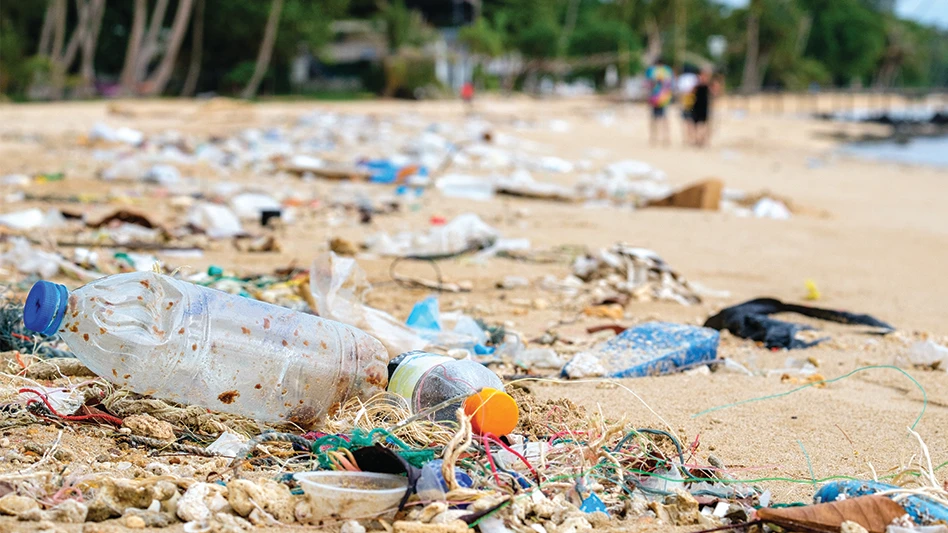
Iurii | stock.adobe.com
The Washington-based Ocean Conservancy has released a new report, "United States of Plastics," that analyzes state-level efforts to combat plastic pollution on a five-star scale. According to the report, on average, U.S. states scored 1.5 stars, or “needs improvement,” with 44 out of 50 states and Washington D.C. scoring below three stars.
“Overall, the results are disappointing,” Ocean Conservancy Director of Plastics Policy Anja Brandon says. “Four in five Americans consider plastic pollution to be the most pressing issue facing our ocean, yet only six states ranked as ‘good’ or above in our study. We hope that the 'United States of Plastics' report inspires policy change and gives a benchmark for states to measure their progress in combating plastic pollution in the years to come.”
The report reviews more than 20 factors related to plastic pollution policy, including what it deems “positive actions,” such as:
- bans on single-use plastic items like bags, straws, foam and utensils;
- preventing microplastics;
- bottle bills;
- recycling rates and accessibility
The report also considers actions the organization says “hinder progress,” such as laws that prohibit local governments from regulating single-use plastics.
Based on the report’s rating system, California scored the highest in the country with 4.5 stars. Of the six states earning at least three stars, five—California, Oregon, Washington, Maryland and Maine—have passed extended producer responsibility (EPR) legislation. New York is the sixth state.
Additionally, California, Oregon, Maine and New York have existing bottle deposit return systems (DRS). The six highest-scoring states also have placed various bans on single-use plastics such as expanded polystyrene (EPS), bags and cutlery, for example.
Eleven states, Colorado, Minnesota, Iowa, Illinois, Delaware, New Jersey, Connecticut, Rhode Island, Massachusetts, Hawaii and Vermont, and Washington D.C., received at least two stars, or a “fair” rating. Mississippi is the lone state to receive a “needs improvement” rating of less than one star.
The Ocean Conservancy notes that it has advocated for policies to prevent and manage plastic pollution at the state level, including California’s Plastic Pollution Prevention and Packaging Producer Responsibility Act, or Senate Bill 54; single-use plastic bans in California, Florida, Illinois and Oregon; banning the intentional release of balloons in Florida; and more.
“States are on the frontlines of tackling our plastic pollution crisis,” Brandon says. “They bear the costs of cleanup, recycling operations and the consequences of plastic pollution in our communities. That’s why state-level action is not only appropriate, it’s essential. When we pass policies that reduce plastic waste at the source, we save taxpayer dollars, protect public health and deliver immediate, tangible benefits to local communities and ecosystems.”
Latest from Recycling Today
- Interchange 360 to operate alternative collection program under Washington’s RRA
- Waste Pro files brief supporting pause of FMCSA CDL eligibility rule
- Kuraray America receives APR design recognition for EVOH barrier resin
- Tire Industry Project publishes end-of-life tire management guide
- Des Moines project utilizes recycled wind turbine blades
- Charter Next Generation joins US Flexible Film Initiative
- Vecoplan to present modular solutions at IFAT 2026
- Terex Ecotec appoints Bradley Equipment as Texas distributor





